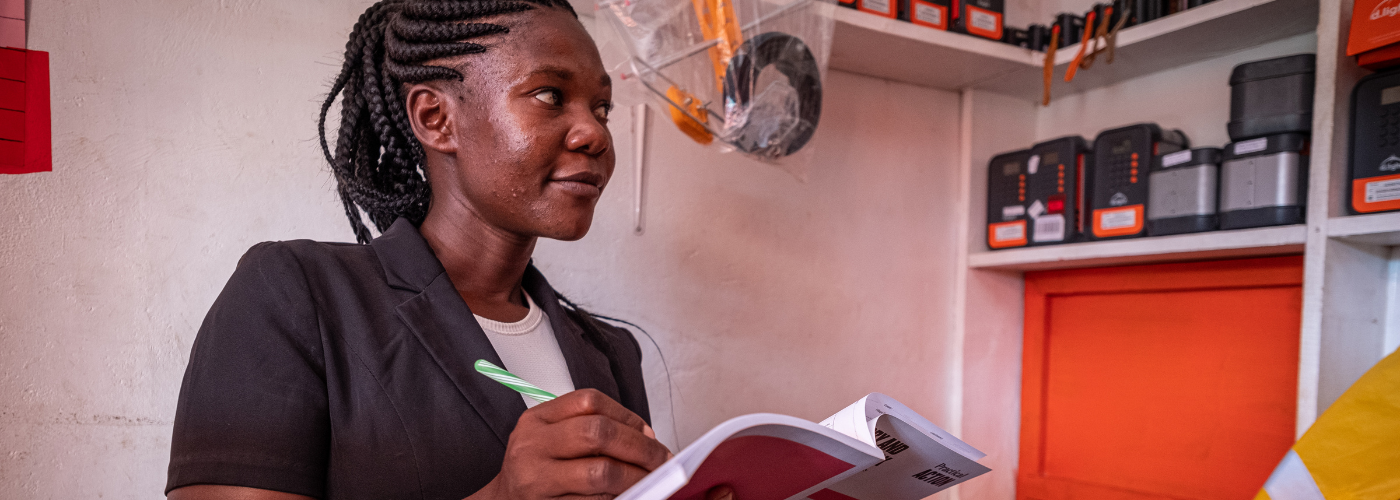By Tjarda Muller, ENERGIA
From September 4 to 6, Kenya hosted the first Africa Climate Summit ever. For three days, Heads of States from across Africa convened to address the ever-worsening effects of climate change and the energy crisis that put the lives of millions of people in harm’s way. Worldwide, 733 million people still lack access to electricity, with a staggering 600 million residing in Africa. Additionally, nearly half of the 2.4 billion people without access to clean cooking technologies and fuels live on the African continent. Moreover, Africa faces the harsh reality of warming at a faster rate than the rest of the world, resulting in disproportionate burdens and risks linked to climate change-related, unpredictable weather events and patterns.
Needless to say, that bold actions and commitments are pressing. The leaders attending the summit pledged, in their final declaration, to develop policies and initiatives encompassing climate-positive growth, biodiversity and the energy transition. While applauding these commitments, it is disappointing to note the omission of gender considerations, particularly the role of women in the energy transition.
Given that women make up half of Africa’s population, policies, programs, interventions and funding should not disregard gender-blind. African women should play a crucial role in the energy transition, participating in decision-making processes, the energy value chain and employment opportunities. In this context, Her Excellency Rachel Ruto, the First Lady of Kenya, along with other African First and Second Ladies, organized a side event to discuss the role of women in ensuring a sustainable future for Africa through the energy transition.
It is undeniable that women play a pivotal role in steering the energy transition towards a sustainable future across Africa. Their engagement transcends environmental preservation; it is a catalyst for fostering social and economic equity
affirms Her Excellency Rachel Ruto in her keynote speech. “While designing policy interventions and solutions that will accelerate the energy transition, women need to be involved to ensure that interventions are built with the users in mind.”
During the two-hour session, the role of women in five sub-thematic areas of a just energy transition was dissected: electricity, clean cooking, climate action, finance, health and economic empowerment. This discussion included keynotes and a panel discussion.
Sheila Oparaocha, Director of ENERGIA, stressed that “advancing a just and inclusive energy transition necessitates more than just providing energy services. It entails creating a conducive policy and market environment for gender equality within the energy transition”. She highlighted four key elements that should be considered: prioritizing the eradication of energy poverty by enhancing women’s access to and control over sustainable energy solutions, increasing gender-responsive investment and financing, providing equal opportunities for women to excel as leaders in the energy sector, and employing gender justice as an accountability framework. This includes the collection of sex-disaggregated data and the monitoring of gender-specific Key Performance Indicators (KPIs) in all energy and climate transition initiatives. Such monitoring makes it possible to measure progress, identify gaps and hold stakeholders accountable for achieving gender equality outcomes.
Other speakers included Ms. Dymphna Van der Lans, CEO of the Clean Cooking Alliance, who discussed the roles of women and political leaders in a just energy transition, Dr. Kevin Kariuki, Vice President of the African Development Bank, who focused on “Power, Energy, Climate and Green Growth” and Ms. Wendy Hughes, Regional Director for Infrastructure at the World Bank.
Despite the extensive discussions and concrete actions proposed to make an equitable and just energy transition possible, none of these found their way into the final declaration. To ensure that gender considerations are incorporated into global declarations and monitoring systems, combining advocacy initiatives with active lobby towards policymakers and participation in decision-making bodies is indispensable.







